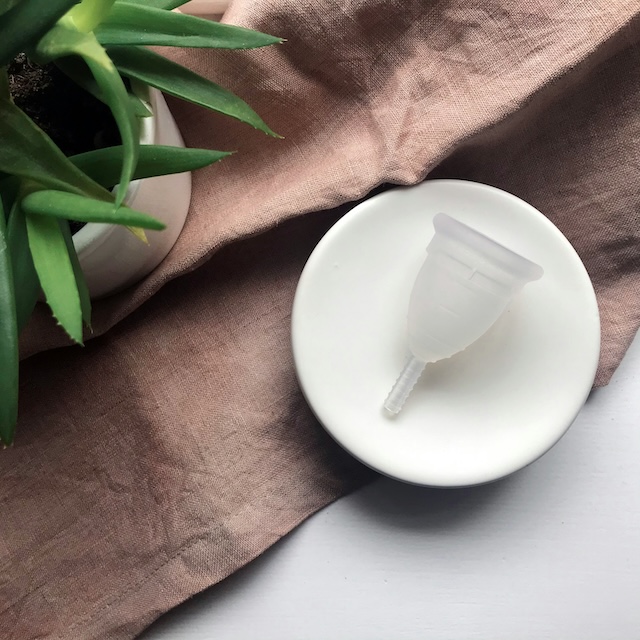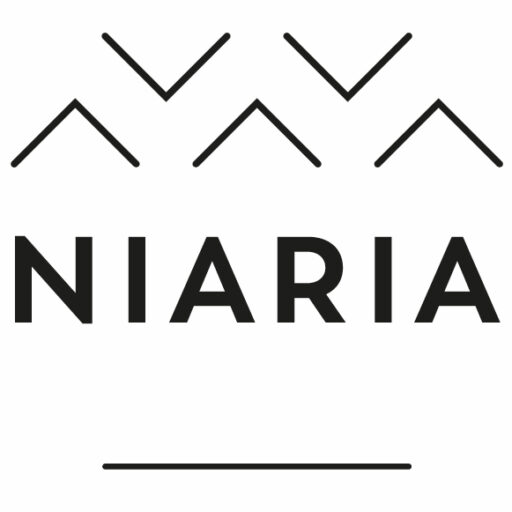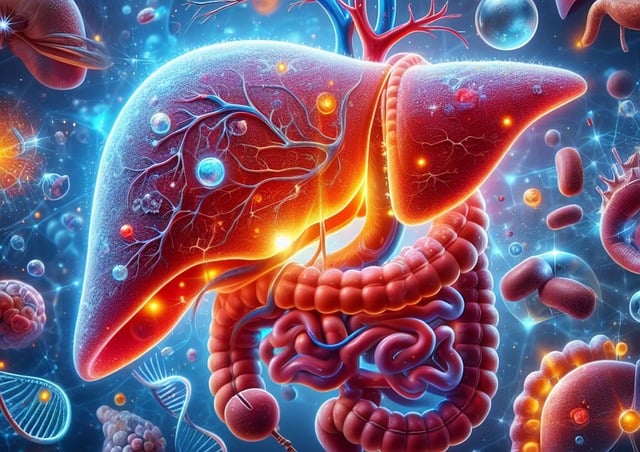
The menstrual period is a time marked by significant physical and emotional changes for many women. As the body navigates its natural cycle, hormonal fluctuations can lead to various symptoms, including changes in appetite and increased cravings for certain types of food. These cravings, coupled with emotional stress experienced by some women during menstruation, can make managing weight and maintaining healthy eating habits challenging. However, with a mindful approach and a clear understanding of the body’s needs during menstruation, it is possible to manage appetite effectively and promote overall well-being.
This comprehensive guide delves into the biological mechanisms behind menstrual-related appetite changes and offers actionable tips and strategies to manage these changes. By gaining insight into the connection between hormones and hunger, women can make informed choices that support their nutritional needs and enhance their overall health throughout their menstrual cycle.
Hormonal Changes and Appetite
The menstrual cycle involves complex hormonal fluctuations that significantly impact appetite and food cravings. Understanding these hormonal changes is crucial for effectively managing appetite and making healthier food choices during menstruation.
The Role of Estrogen and Progesterone
Estrogen and progesterone are the primary hormones regulating the menstrual cycle. Each phase of the cycle is characterized by distinct hormonal patterns that influence appetite and mood.
Estrogen Phase (Follicular Phase)
During the first half of the menstrual cycle, known as the follicular phase, estrogen levels rise steadily. Estrogen has been shown to suppress appetite and enhance mood, which can lead to a reduced desire to eat and an increased sense of energy. Women may notice a decrease in cravings for high-calorie foods and a greater ability to resist unhealthy snacks during this phase.
Progesterone Phase (Luteal Phase)
After ovulation, during the luteal phase, progesterone levels increase. Progesterone has a different effect compared to estrogen; it tends to increase appetite by enhancing metabolic rate and signaling the body to store more energy. This phase is often associated with premenstrual syndrome (PMS), which can include symptoms such as mood swings, irritability, and heightened cravings for sweet and fatty foods. The increase in progesterone can make the body crave more food to meet its increased energy demands.
During the luteal phase, the body’s metabolic rate can increase by approximately 5-10%, meaning that it burns more calories even at rest. This heightened metabolic rate can contribute to increased hunger and a greater desire for calorie-dense foods. While this can explain the urge to eat more, especially high-calorie options, it is important to address these increased needs with nutrient-dense foods rather than resorting to unhealthy choices.

Ways to Control Appetite
Understanding the hormonal changes associated with the menstrual cycle is key to managing appetite effectively. Maintaining a balanced diet is crucial for managing appetite and ensuring that the body receives the necessary nutrients, particularly during menstruation. A balanced diet helps stabilize blood sugar levels, provides sustained energy, and reduces the intensity of cravings. The following strategies can help women maintain a balanced diet and manage cravings during menstruation.
Protein and Fiber Intake
Foods rich in protein and fiber are particularly effective in controlling hunger. Protein helps regulate blood sugar levels and promotes satiety, while fiber adds bulk to the diet and slows digestion, keeping you full for longer.
Protein Sources: Include lean proteins such as fish, eggs, legumes, and plant-based options like tofu or tempeh. These choices not only help manage hunger but also provide essential amino acids needed for repair and growth.
Fiber-Rich Foods: Incorporate whole grains like oats, quinoa, and brown rice, as well as a variety of vegetables and fruits. Vegetables such as broccoli, Brussels sprouts, and leafy greens are high in fiber and low in calories, making them ideal for maintaining fullness without overeating.
Regular Meals
Eating at regular intervals is essential for maintaining stable blood sugar levels and preventing sudden hunger pangs that can lead to overeating. Skipping meals or going for long periods without eating can cause blood sugar levels to drop, leading to intense cravings, especially for sugary or high-carb foods.
Meal Timing
Aim to eat small, balanced meals every 3-4 hours. This approach not only keeps hunger at bay but also helps maintain consistent energy levels throughout the day. Including a source of protein, healthy fat, and fiber in each meal can further enhance satiety and reduce the likelihood of cravings.
Healthy Snacks
Selecting the right snacks can help satisfy cravings without disrupting your diet.
Satisfying Sweet Cravings
Many women experience a strong desire for sweets during menstruation, driven by hormonal changes and a drop in serotonin levels, which can lead to low mood and cravings for comfort foods.
Healthier Alternatives: Choose healthier options to satisfy your sweet tooth without causing blood sugar spikes. Fresh fruits like berries, apples, or bananas provide natural sweetness along with fiber and vitamins. Dark chocolate, especially varieties with 70% cocoa or higher, is another great option, offering antioxidants and a rich flavor with less sugar. Dried fruits such as apricots or figs can also be a good choice but should be consumed in moderation due to their concentrated sugar content.
Managing Cravings for Salty Foods
Cravings for salty foods are also common during menstruation, often due to the body’s need to balance electrolytes, which can fluctuate due to hormonal changes and water retention.
Healthier Options: Instead of processed snacks like chips, opt for nuts, seeds, or unsalted popcorn. Nuts and seeds, such as almonds, walnuts, and pumpkin seeds, provide healthy fats, protein, and minerals like magnesium, which can help alleviate PMS symptoms. Popcorn, when prepared without excessive butter or salt, is a low-calorie, high-fiber snack that can satisfy the need for something crunchy and savory.
Drink Plenty of Water
Hydration plays a vital role in managing appetite and overall health during menstruation. The body’s hydration needs can increase during this time due to fluid loss and the need to flush out excess hormones and waste products.
Hydration: Drinking adequate water supports bodily functions and helps reduce feelings of hunger. Often, thirst can be mistaken for hunger, leading to unnecessary snacking. Staying well-hydrated can help control appetite and maintain energy levels.
Hydration Tips: Aim to drink at least 8 glasses of water daily, or more if you are physically active or experiencing heavy menstrual flow. Include hydrating foods like cucumbers, watermelon, and oranges in your diet to meet your fluid needs. Herbal teas and infused water with lemon, mint, or cucumber can add variety and make it easier to stay hydrated throughout the day.
Dealing with Emotional Eating
Emotional eating can be a challenge during menstruation, as hormonal changes may lead to mood swings, irritability, and stress, triggering emotional eating as a coping mechanism.
Creating Awareness
Understanding the difference between physical hunger and emotional hunger is crucial in managing emotional eating. Physical hunger builds gradually, is satisfied by eating any type of food, and leads to feelings of fullness. Emotional hunger, in contrast, comes on suddenly, is often specific to comfort foods, and can lead to feelings of guilt or shame after eating.
Mindful Eating
Practice mindful eating by paying attention to hunger cues, eating slowly, and savoring each bite. This helps increase awareness of what you’re eating and why, making it easier to resist the urge to eat for emotional reasons.
Engage in Alternative Activities
When you notice the urge to eat due to emotions rather than physical hunger, try engaging in other activities that can help lift your mood or distract you. Physical activities like walking, jogging, or yoga can help release endorphins, which improve mood and reduce stress. Non-physical activities such as reading, journaling, or engaging in a creative hobby can also help shift your focus away from food.
Seeking Support
If emotional eating becomes a persistent issue, consider seeking support from friends, family, or a professional counselor. Discussing your feelings and obtaining support can help manage stress and emotional eating more effectively. If you want to learn more about emotional hunger, read this article.
Exercising
Regular exercise is an effective method for managing appetite and enhancing overall well-being during menstruation. Exercise helps regulate hormones, reduce stress, and increase the body’s sensitivity to insulin, which can assist in controlling blood sugar levels and reducing cravings.
Endorphin Release
Exercise stimulates the release of endorphins, which are natural mood elevators. These chemicals can help counteract mood swings and irritability associated with PMS and menstruation. Additionally, regular physical activity can help reduce bloating and water retention, common symptoms during the menstrual period.
Exercise Types
Choose exercises that you enjoy and that make you feel good. While intense workouts may not be appealing during this time, lighter forms of exercise like yoga, Pilates, walking, or light cardio can be beneficial. These activities not only help manage appetite but also reduce menstrual cramps and boost overall energy levels.

Additional Strategies for Managing Appetite During Menstruation
Incorporate Anti-Inflammatory Foods
Certain foods possess anti-inflammatory properties that can help alleviate PMS symptoms, including bloating and mood swings. Including these foods in your diet can support overall well-being during menstruation.
Include foods rich in omega-3 fatty acids, such as salmon, chia seeds, and walnuts. Berries, turmeric, ginger, and green tea are also known for their anti-inflammatory effects. These foods can help balance hormone levels and reduce inflammation, potentially easing some discomfort associated with menstruation.
Maintain a Healthy Sleep Routine
Adequate sleep is essential for overall health and can influence appetite regulation. Poor sleep can exacerbate cravings and increase the likelihood of overeating.
Sleep Tips: Aim for 7-9 hours of quality sleep each night. Establish a consistent sleep schedule, create a calming bedtime routine, and make your sleep environment as comfortable as possible. Good sleep hygiene can help regulate hormones, improve mood, and manage appetite more effectively during menstruation.
Incorporate Mindful Eating Practices
Mindful eating can be particularly beneficial during menstruation when cravings and emotional eating might be more pronounced. This approach involves paying full attention to the eating experience, savoring each bite, and being aware of hunger and satiety cues. By practicing mindful eating, women can develop a better relationship with food, making it easier to differentiate between physical hunger and emotional cravings.
Techniques for Mindful Eating:
- Eat without distractions: Try to eat without engaging in other activities, such as watching TV or using a smartphone. This helps you focus on the taste, texture, and satisfaction of the food
- Chew thoroughly: Take the time to chew food slowly and thoroughly. This not only aids digestion but also allows you to enjoy the flavors and textures, making you more aware of your fullness signals.
- Pause between bites: Putting down your utensils between bites can help you pace yourself and recognize when you are full, potentially preventing overeating.
Manage Stress Through Relaxation Techniques
Stress can exacerbate menstrual symptoms and lead to emotional eating. Incorporating relaxation techniques into your daily routine can help manage stress and support overall well-being.
Effective Relaxation Techniques:
- Deep breathing exercises: Practice deep breathing exercises to reduce stress and calm the mind. Simple techniques such as inhaling deeply through the nose and exhaling slowly through the mouth can be performed anywhere and at any time.
- Meditation: Regular meditation can help reduce anxiety and improve emotional regulation. Consider setting aside a few minutes each day for meditation to help manage stress and maintain a balanced mood.
- Progressive muscle relaxation: This technique involves tensing and then slowly relaxing different muscle groups in the body. It can help alleviate physical tension and promote relaxation.

Include Foods Rich in Magnesium and Calcium
Magnesium and calcium play a significant role in managing menstrual symptoms and supporting overall health. These minerals can help reduce bloating, mood swings, and cramping, contributing to a more comfortable menstrual period.
Sources of Magnesium and Calcium:
- Magnesium-rich foods: Incorporate foods such as leafy green vegetables, nuts, seeds, and whole grains. Magnesium helps relax muscles and can alleviate menstrual cramps.
- Calcium-rich foods: Plant-based sources like tofu, are excellent sources of calcium. Calcium can help reduce PMS symptoms and support overall bone health.
Explore Herbal Remedies
Certain herbal remedies may offer relief from menstrual symptoms and support appetite management. While these remedies can be helpful, it is important to consult with a healthcare professional before incorporating new supplements into your routine.
Popular Herbal Remedies
- Chaste Tree Berry (Vitex agnus-castus): Often used to alleviate PMS symptoms, chaste tree berry may help balance hormones and reduce mood swings.
- Ginger: Known for its anti-inflammatory properties, ginger can help reduce menstrual cramps and nausea. It can be consumed as tea or added to meals.
- Peppermint: Peppermint tea can help soothe digestive issues and alleviate bloating that may occur during menstruation.
Consider Supplements
In some cases, dietary supplements can assist in managing menstrual symptoms and supporting overall health. However, it is crucial to consult with a healthcare professional before starting any new supplements.
Potential Supplements: Calcium and magnesium supplements can help alleviate PMS symptoms and support overall well-being. Vitamin B6 may also aid in mood regulation and reduce cravings. Always seek advice from a healthcare provider to determine the appropriate dosage and to ensure the supplements are safe and suitable for your individual needs.
Track Your Cycle
Monitoring your menstrual cycle can help you anticipate changes in appetite and plan accordingly. Understanding your cycle provides valuable insights into your body’s needs and can aid in managing symptoms more effectively.
Tracking Tools: Utilize a menstrual cycle tracking app or calendar to keep track of your cycle and symptoms. This information can help identify patterns, such as when cravings are most intense, allowing you to implement strategies in advance to manage your appetite and overall health.
Consider Professional Guidance
If managing appetite and menstrual symptoms becomes particularly challenging, seeking guidance from a healthcare professional or a registered nutritionist or dietitian can be beneficial. These experts can provide personalized advice and support tailored to your individual needs, helping you develop a comprehensive plan to manage your menstrual health effectively.
When to seek professional help:
- Persistent Symptoms: If symptoms like severe cravings, persistent bloating, or extreme mood swings interfere with daily life, professional guidance can provide targeted strategies and support.
- Nutritional Deficiencies: A healthcare provider can assess if you have any nutritional deficiencies and recommend appropriate supplements or dietary adjustments.
Conclusion
Effectively managing appetite and overall well-being during menstruation requires a multifaceted approach that addresses both physiological and emotional factors. By incorporating mindful eating practices, managing stress, including nutrient-rich foods, exploring herbal remedies, and seeking professional guidance when needed, women can navigate the complexities of their menstrual cycle with greater ease and confidence. These strategies not only help manage appetite but also contribute to a healthier and more balanced lifestyle throughout the menstrual cycle.
Taking charge of your health during your menstrual cycle can significantly improve your overall well-being and make your periods more manageable. By understanding the hormonal changes and implementing the strategies outlined in this guide, you can better control your appetite, manage cravings, and maintain a balanced diet.
Here’s what you can do next:
- Start Tracking Your Cycle: Use a menstrual cycle tracking app or calendar to monitor your cycle and understand how your appetite and cravings fluctuate throughout the month. This awareness will help you plan and adjust your diet and lifestyle accordingly.
- Revise Your Eating Habits: Begin incorporating more protein and fiber-rich foods into your meals and snacks. Experiment with healthier alternatives to satisfy cravings and aim to eat balanced meals at regular intervals.
- Stay Hydrated: Make it a goal to drink at least 8 glasses of water a day and include hydrating foods in your diet. Proper hydration can help manage appetite and support overall health.
- Engage in regular exercise: Find an activity you enjoy and incorporate it into your routine. Whether it’s yoga, walking, or light cardio, regular exercise can help regulate hormones, improve mood, and manage appetite
- Practice mindful eating: Focus on your eating experience by savoring each bite and being mindful of hunger and fullness cues. This practice can help you make more conscious food choices and reduce emotional eating.
- Seek support if needed: If you’re struggling with severe cravings, mood swings, or emotional eating, consider talking to a healthcare professional or a registered dietitian. They can provide personalized advice and support tailored to your needs.
Taking these steps will empower you to manage your menstrual symptoms more effectively and foster a healthier lifestyle. Remember, you don’t have to navigate this journey alone support and resources are available to help you thrive throughout your menstrual cycle. Subscribe to our newsletter to stay updated with insightful tips or join us on social media.
Women’s Hormonal Balance: Nutrition, Lifestyle, and Key Strategies for Optimal Health
Introduction Women's hormonal balance is a...
Liver Health: Natural Care, Foods, and Supplements
Introduction The liver is one of the...
The Effect of Micronutrients on Body Function
Micronutrients, which encompass vitamins and...
Foods that Naturally Increase Bone Density
Bone health is essential at every stage of life,...
Adaptogen Plants: Natural Ways to Manage Stress
In a world where stress is part of daily life,...
Vegan and Vegetarian Nutrition
Why People Choose Vegan and Vegetarian Diets...
Maximize Your Performance: Nutrition Before and After Exercise
Introduction Optimizing your nutrition...
Sustainable Nutrition and Eco-Friendly Consumption
Introduction to Sustainable Nutrition...
Strengthening Your Immune System Through Proper Nutrition
Introduction The immune system is our...










